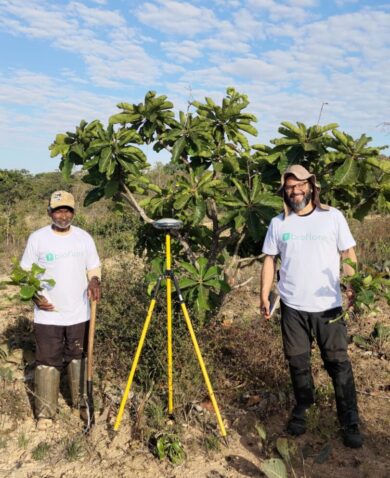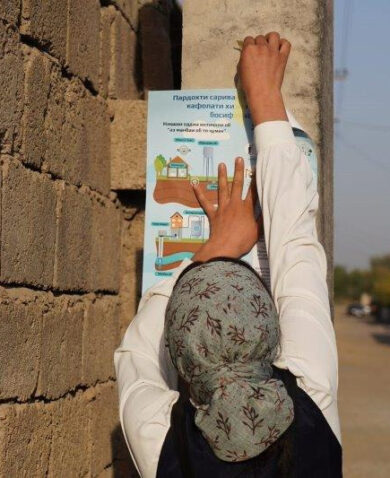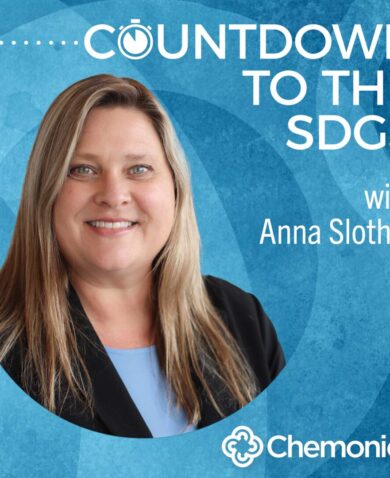
Development Works Here with Saeed Uri
May 15, 2024 | 4 Minute ReadDevelopment works here because great people work here. We’re excited to introduce you to our team.
Meet Saeed Uri! Saeed is Chemonics’ senior vice president for impact, bringing more than ten years of experience in fragile or transitional environments where he spearheaded the adoption of innovative approaches and technologies to achieve greater impact. Most recently, as chief of party on the USAID/OTI Iraq Regional Program, Saeed worked hand-in-hand with local partners to strengthen community resilience against climate change and other sources of instability.
In this short interview, Saeed shares his thoughts on key challenges and opportunities of implementing sustainable development programs worldwide, including the importance of adaptive management, how emerging technologies can be ethically deployed in a changing landscape, and the value of rapid data analysis.
Based on your experience leading programs in fragile and conflict-affected settings, what do you see as the key challenges and opportunities for working in such complex environments?
When implementing programs in fragile and conflict-affected settings, one of the greatest challenges is understanding local dynamics and their interplay with national or regional politics. Limited access to key stakeholders and the highly politicized environment that naturally forms in these situations fosters an information “fog,” which is why Chemonics places a premium on identifying and working with locally-based experts in the communities we are aiming to serve. For example, when working in more tribal communities in Iraq, our local experts would help us untangle relationships between tribes, and even within tribes, while identifying individuals or organizations that can drive positive change. Similarly, conflict-affected environments are fluid, requiring implementing partners to constantly monitor ongoing developments to ensure programming remains relevant and follows “do no harm” principles. New and emerging technologies have made this possible by enabling rapid data collection and analysis to support sustainable development.
What role can technology play in improving decision-making to support the adaptive management of development programming?
Adjusting programming as the operating context changes is a form of adaptive management that is critical in these environments. This approach requires regular data collection and analysis, and this is where we have used emerging technology to our advantage. In Iraq, we leveraged a mobile app to rapidly collect data to assess the perceptions around the return and reintegration of internally displaced people (IDPs), then used AI to perform data analysis. With these tools, we were able to halve the time and effort required to adapt our programming based on the app’s findings. This resulted in us directing more programming towards at-risk areas that were identified based on compounding factors of returning IDPs, water scarcity due to climate change, and rising social tensions. Again, I can’t emphasize how important quickly adapting programming in these contexts is, and these new tools have made the process more efficient.
How should development programs ensure the responsible and ethical integration of new technology, and what opportunities do they present for innovation in the sector?
Our local experts are involved in all aspects of designing and conducting research initiatives, from framing the research question to designing the data collection tools. Once our analysis is completed, we then leverage these experts to review the findings, which is always very helpful, as they often provide critical additional clarifications. AI and other technologies can never be a replacement for this expertise, but they can enable a more cost-effective approach that allows experts to focus their efforts where it matters most. The issues we explore are too complex and ever-changing, and often only someone with an intimate knowledge of the community may understand. I am concerned by some tools that are advertised as “silver bullets,” but raise serious ethical concerns when you consider the influence they may have on programming. For example, if AI is used to inform the design of a program without expertise or an understanding of the local context, the program may face significant challenges in implementation and potentially even do harm. However, these tools still have enormous potential to empower experts.
How does rapid data analysis support more effective decision-making in development projects, and what lessons can be learned from previous projects where rapid data analysis played a crucial role?
Global challenges are becoming increasingly complex and interconnected. As we have seen, conflict, climate, and disease in one part of the world may impact another through disrupted supply chains or population displacement. While these challenges are immense, our ability to identify or even forecast these issues has improved significantly. In my new role on Chemonics’ Sustainable Development Impact Lab, I am working with a crosscutting group of development and technology experts to leverage Chemonics’ global reach, technical depth, and exceptional data collection abilities to identify ways to pull multiple sources of data together. With the help of AI, we then analyze this data to identify trends, gather insights, and provide recommendations to inform programming.
For example, our FEWS NET 7 team recently participated in a day-long AI Envisioning Workshop hosted by Microsoft to explore how AI could be leveraged to enhance the accuracy of our food insecurity early warning analysis. We discussed the potential for AI to help identify new data sources through web scraping, generate insights from data sources like satellite imagery, and quickly summarize and translate decision support products for use in multiple languages. We also explored how conflict early warning systems that leverage AI can better inform famine early warning. Through the Sustainable Development Impact Lab, we are not only experimenting with how we can responsibly and ethically integrate AI into our programs, but also investing in how AI and other new technologies can enable local experts to spearhead change in their communities. Local changemakers gaining access to new and emerging technologies can not only further empower them to develop locally led, scalable solutions, but continually bring us closer to achieving our sustainable development goals.
Posts on the blog represent the views of the authors and do not necessarily represent the views of Chemonics.







































